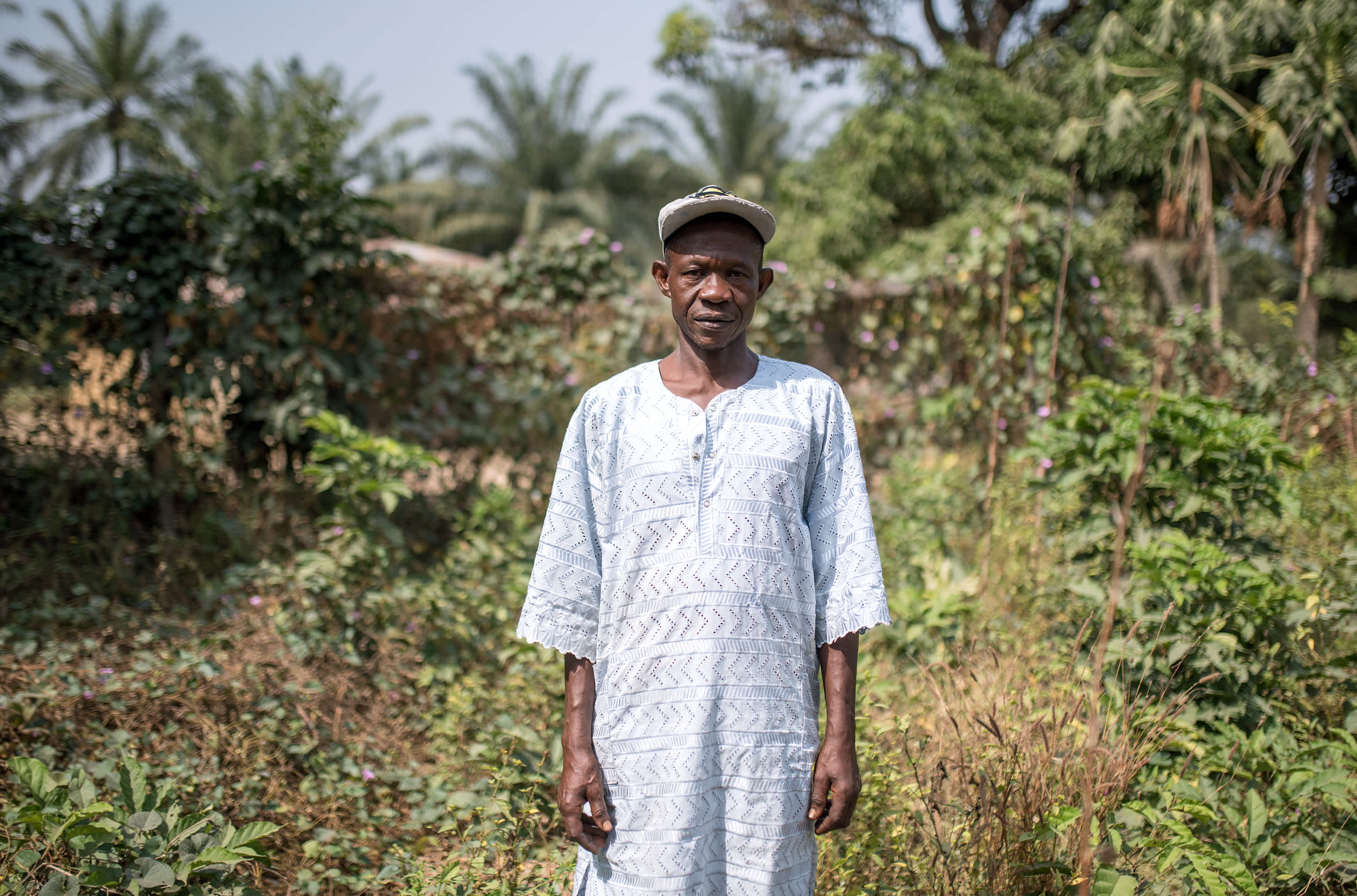
Lamine, Traditional Healer
About Lamine
Lamine is a traditional healer from Tonkolili in Sierra Leone. Healers, otherwise known as herbalists, have their skills and knowledge passed onto them by family members. Lamine makes ointments and remedies from the environment around him, like leaves in the bush. He often treats people for no payment, he says it is his passion to help people and he loves doing the job.
Having followed in his mother’s footsteps Lamine’s role as a traditional healer in his community means that he is trusted to help people when they fall ill.
In a lot of communities many people tend to trust traditional healers like Lamine, over health care centres or hospitals. A project run by Concern Worldwide, and funded by the Comic Relief and GSK partnership, seeks to address poor use of heath care centres and hospitals by working directly with traditional healers. They are encouraging the referral of sick people to health centres, especially if pregnant or young and are educating communities to address myths and concerns about using professional places.

"WHEN WE DID NOT HAVE TENTS MOSQUITOS USED TO BITE US. THEY TAKE BLOOD FROM ONE PERSON AND TRANSFER IT TO ANOTHER. SO NOW THAT THEY [CONCERN WORLDWIDE] HAVE BROUGHT US TENTS, I AM HAPPY ABOUT THAT. SO NOW WE KNOW THE PROBLEM, NOW WE HAVE STARTED COVERING OURSELVES WITH THE TENTS."
LAMINE
Lamine knows that malaria is the worst disease affecting his community, and sees the impact it has on his community members, kids cannot go to school and older people are unable to work.
Crucially, Lamine is open to learning new ways of helping his community and was one of the first people to embrace working with Concern Worldwide to ensure some of the most vulnerable, including pregnant women and children, get treatment for malaria earlier.
As part of this work, Concern Worldwide are training traditional healers like Lamine to refer sick people to hospital earlier and working in communities to dispel negative myths around the use of health services so that people seek out health services earlier and more often.
